The attitude was ”better a horrible ending than a horror without end”. There had been peace in the world for too long. From Berlin, in the spring of 1914, Colonel House wrote to Woodrow Wilson, ”the whole of Germany is charged with electricity. Everybody’s nerves are tense. It only requires a spark to set the whole thing off”.
The malaise was evident everywhere.This was particualar in new cults which rationalized political violence by expressing and even glorifying a spirit of violence and disorientation. Germany may have been its most fervent apostle, but the zealotry infected all of Europe. The new philosophies of Freud, Nietzsche and Pareto focused on the unconscious and the irrational, and the ambiguity of these social sciences were easily manipulated and shaped to inform and provoke public opinion. The revolution brought about by Freud’s discovery of the unconscious, and his empirical proof of what Schopenhauer and Nietzsche had already grasped intuitively seemed to be forged into philosophy of materialism, or what Arthur Koestler would refer to as appealing to the reptilian portion of the human brain.Language became a topic of central importance within philosophy, known as the “linguistic turn” (Wittgenstein). The philosophers of life, the most influential of whom was the Frenchman Henri Bergson, saw reality as a becoming. For them, there is in fact only becoming, acting and action (élan vital). Up was now down and left became right. These philosophies helped articulate and make apparent the numerous lying pretensions of middle class values and conventions and, contributed to a sense of impending doom that permeated the avant-garde arts of the prewar years.
”Patriotic parade. Speech by the mayor. Disappears then reappears. and a shout in German: ‘Long live our beloved monarch, hurrah!’ I stand there with my malignant look. These parade are one of the most disgusting accompaniments of the war. Originated by jewish businessmen who are German one day, Czech the next; admit this to themselves it is true, but they were never permitted to shout it out as loudly as they do now. Naturally they carry many others along with them. It was well organized. It is supposed to be repeated every evening, twice tomorrow and Sunday” ( Franz Kafka, diaries. Aug 6, 1914 ) Nihilism was everywhere cloaked in a purifying odor of tabula rasa. Typical of this spirit of rebellion was the manifesto set forth in 1910 by the Italian futurist painters. ”On the 18th of March, 1910, in the limelight of the Chiarella Theater of Turin, we launched our first manifesto to a public of three thousand people—artists, men of letters, students and others; it was a violent and cynical cry which displayed our sense of rebellion, our deep-rooted disgust, our haughty contempt for vulgarity, for academic and pedantic mediocrity, for the fanatical worship of all that is old and worm-eaten….Our renovated consciousness does not permit us to look upon man as the center of universal life. The suffering of a man is of the same interest to us as the suffering of an electric lamp, which, with spasmodic starts, shrieks out the most heartrending expressions of color. The harmony of the lines and folds of modern dress works upon our sensitiveness with the same emotional and symbolical power as did the nude upon the sensitiveness of the old masters. It was declared: ”That all forms of imitation must be despised, all forms of originality glorified….That it is essential to rebel against the tyranny of the terms “harmony” and “good taste” as being too elastic expressions, by the help of which it is easy to demolish the works of Rembrandt, of Goya and of Rodin….That the name of “madman” with which it is attempted to gag all innovators should be looked upon as a title of honor.”
The futurists were a reflection of the broader, egocentric societal view of where nothing could be considered immoral in the search for a new purity. The futurists were against the nude in painting which was regarded to be as nauseous and tedious as adultery in literature; that a clean sweep be made of all ” stale and threadbare subject matter in order to express the vortex of modern life, a life of steel pride, fever and speed…”
Futurism was but one strand of a larger search in the arts and literature for new forms of expression. Expressionism at this time represented a reaction to the old, outdated bourgeois norms and the naive belief in progress. The catastrophes brought about by the First World War, the destruction of humanity, were only too evident and too recent. Expressionists, such as Van Gogh, Toulouse-Lautrec, Munch and Otto Dix, were trying to create a new vision of the human being, one determined by social responsibility and compassion for others. Creative art was seen as evolving out of immediate inner experiencing and emotional dynamics. The basic themes of expressionism were feeling, intuition, subjectivity, fantasy went onto form the basis for Gestalt therapy. Writer Franz Werfel’s verse collection ”Der Weltfreund” was a celbration of human brotherhood and became a landmark in the history of expressionism.” On the eve of World War I he was active in a pacifist society which he organized together with Martin Buber, Gustav Landauer, and Max Scheler.Werfel’s poems about the war appeared in 1919 under the title DER GERICHTTAG (The Day of Judgment) and revealed his despair of mankind.”
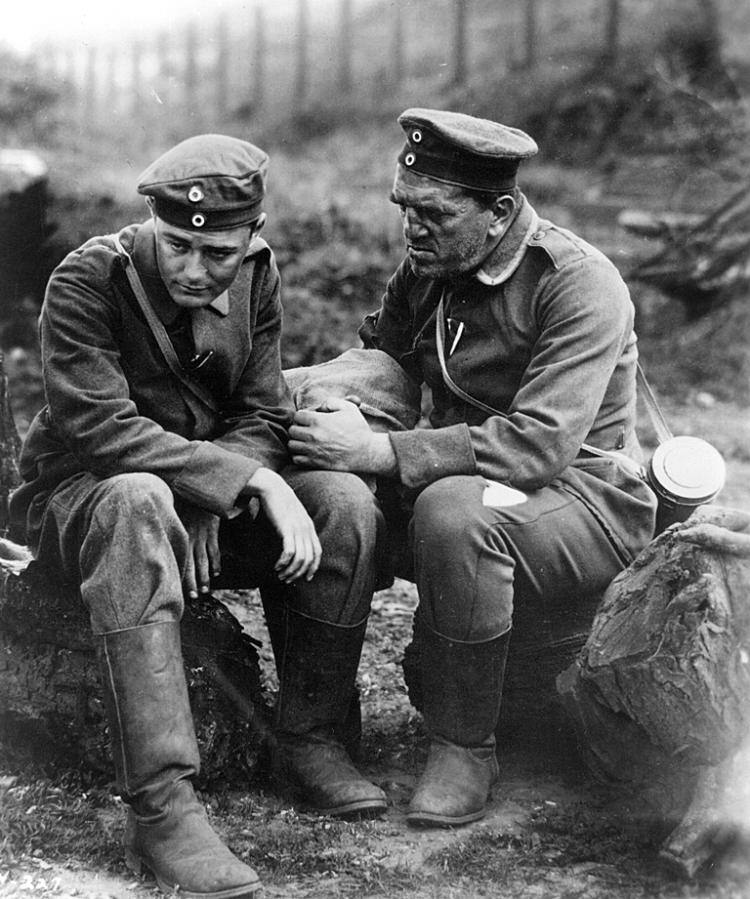
''It might just be the last truly great anti-war film. Nobody begrudged Lewis Milestone’s All Quiet on the Western Front its 1930 Academy Awards for Best Picture and director—not even in retrospect.''
A fever was over Paris as the spring of 1914 slipped into summer. This patriotic romance had seduced the intelligentsia to seek a slice of the jingoistic cake, and promote rhetoric to an irresistible level of fervour as art form . Charles Peguy, a Dreyfusard, Socialist, man of good will and reason, at least to the standards of his intellectual generation, had also, surprisingly, caught this other darker spirit . That spring, the ”pure man” had written, Heureaux ceux qui sont morts dans les grandes batailles….”happy are those who have died in great battles, Lying on the ground before the face of God…” Even English poets such as Rupert Brooke wrote about ”glamorous death”.
The fundamental conventions of civilization needed changing. Technology, the improvement of production methods, was accelerating the rate at which unemployment could be increased in the short run, and social uselessness of a large fraction of humanity in the long run. People artificially employed in its modern form known as Parkinson’s Law basically created a system which began in the early 20th century; a system which can run only by keeping a maelstrom of paper and goods milling around and down into a gigantic drain. For the first time in history, the developed world was faced with the possibility of a world in which only a minority needed work in order to keep the great mjority in a form of idle luxury. This was not acceptable, and war, without the understanding that technology would run away with it, was seen as a logical and rational means to mop up unemployment. Bertrand Russell once said, ”the man who kills his wife with every circumstance of cruelty is a public benefactor by vicariously relieving thousands of their aggressive instincts.” This may be plausible for the antisocial instincts which break out in individual crime, but likely untrue of the glorification of war and of the nationalistic instincts which broke out in collective crime in WWI.
”Read a few pages of Herzen’s ‘Fogs of London’ . Had no idea what it was all about, and yet the whole of the unconscious man emerged, purposeful, self-tormenting, having himself firmly in hand and then going to pieces again” ( Kafka, diaries, Dec.23,1914) Even arch-doves like Martin Buber whose indulgences and over indulgences of unrealistic pacifist solutions and political softness, was not above hopping on the war train,” But history has not dealt kindly with his flirtations with German aspirations in World War I, and this for weightier reasons than that Germany lost the war. Buber’s sympathies were not free of unfortunate Enlightenment-bashing, of unreasonable opposition to the Enlightenment’s admittedly insufficient notions of human reason.” Outside the street’s on fire in a real death waltz Between what’s flesh and what’s fantasy Man, the poets down here don’t write nothing at all, They just stand back and let it all be And in the quick of the night, they reach for their moment and try to make an honest stand But they wind up wounded, not even dead Tonight in Jungleland ( Bruce Springsteen, Jungleland, 1974 ) One of the great literary achievements was ”All Quiet on the Western Front” by Erich Maria Remarque. The film version of 1930 was so controversial that a tangle of different versions existed from the effort to make its uncompromising and authentic message palatable to the widest possible audience, Most ironically, one of the prints used in the film’s definitive restoration was from the personal collection of Joseph Goebbels, who had denounced the film at the premiere and burned Remarque’s novel. ”All Quiets” greatest adversary had contributed to its preservation.
”All Quiet” was based on his experience in the trenches, and is told entirely from the German foot soldiers’ point of view. Remarque’s first professional writing was as an advertising copywriter, part of the reason for the novel’s accessible style. When it was published in 1929, it became the best selling novel of the 20th century. There is no glory in Remarque’s war; it is a savage force sacrificing men and boys to an empty patriotism. In Germany, the objections to it were more complex, since a common soldier hero ran contrary to the glorious rhetoric of novels written by officers. Paul Baumer becomes disgusted with a military world where “We learned that a bright button is weightier than four volumes of Schopenhauer.” The book was criticized by the right for its debunking of the military, and by the left because the author fought in the war, rather than merely denouncing it. No doubt, it will be almost impossible to understand WWI completely except that it was catastrophic. Nothing has really come right in the world since. All the positive evidences in society to which experience, intelligence and knowledge seemed to be steadily tending, gave way to mass conscription, the central direction of war, and the calculated propaganda lie. In short, Europe seemed to have evolved many of the features of totalitarianism. That WWII should have been fought at all may have been the direct outcome of the spiritual wasteland that the first WWI engendered.


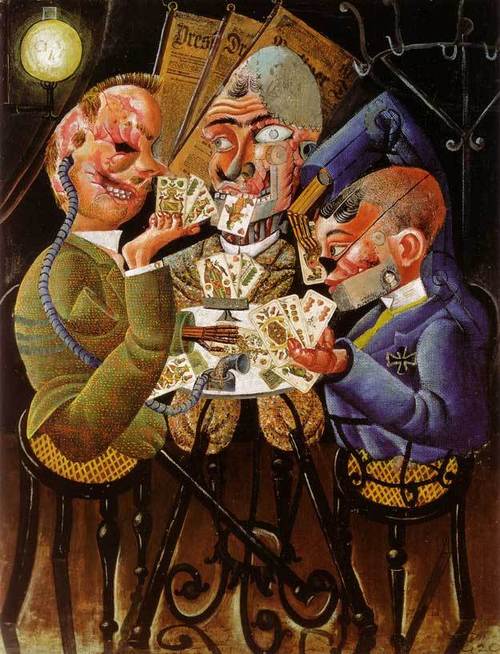
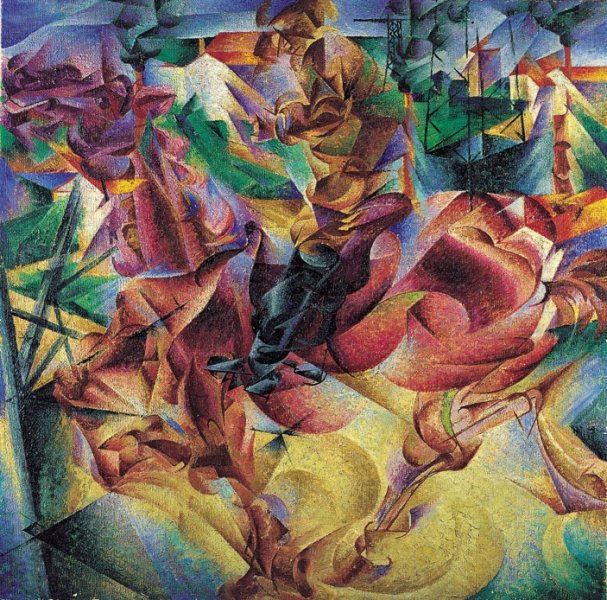
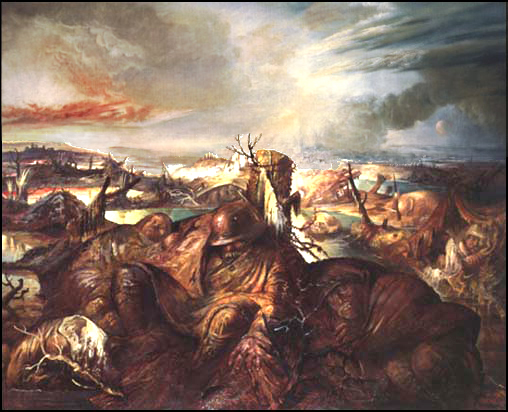
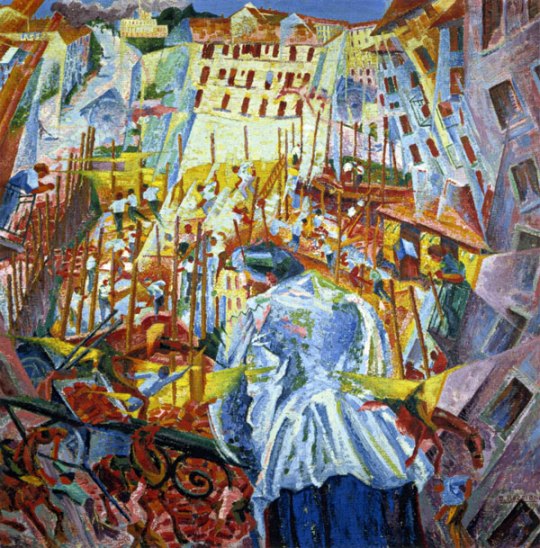
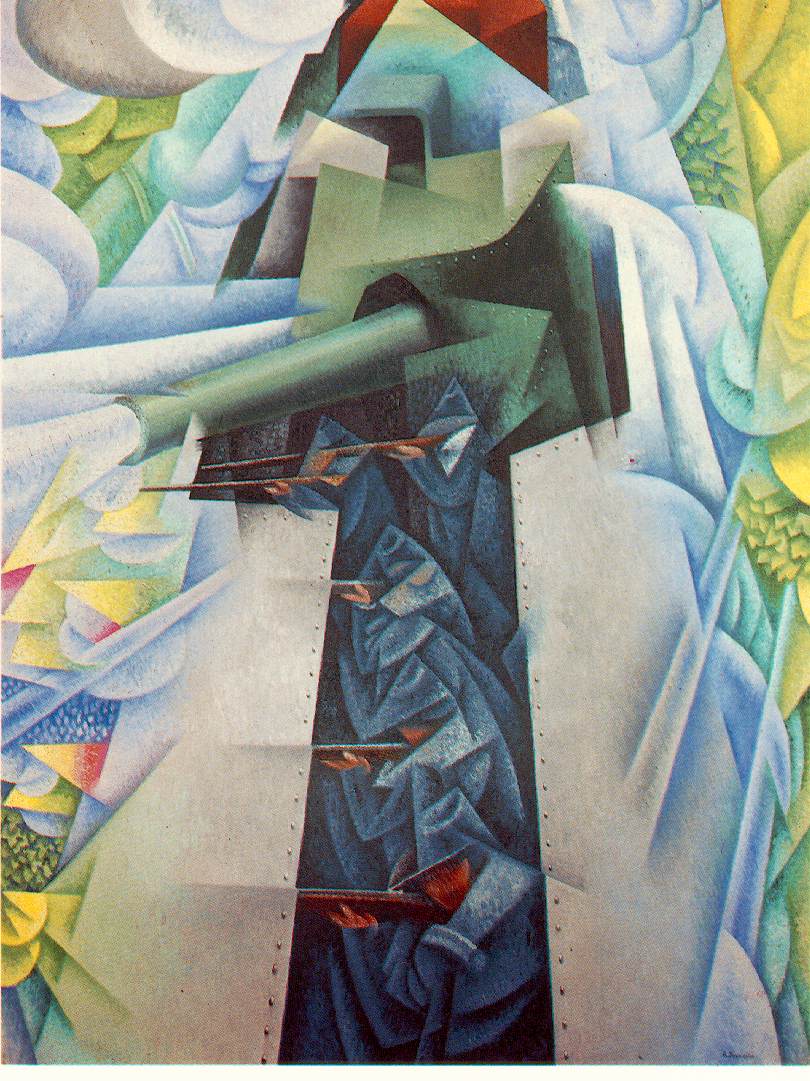
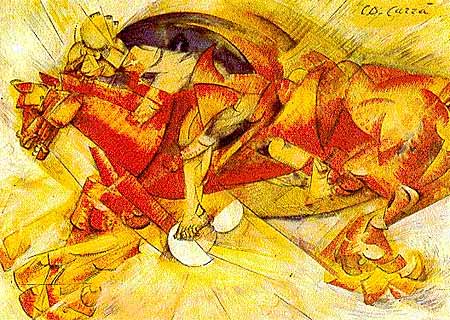
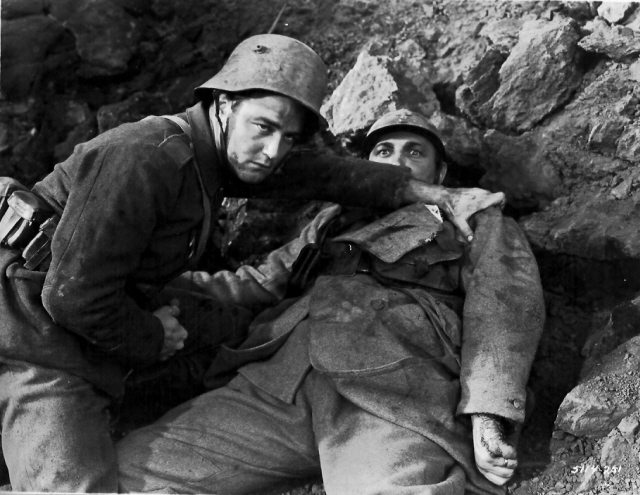



 COMMENTS
COMMENTS
Excellent writing, David!!!! So glad to have found this site!!!
“All Quiet on the Western Front” is written by Erich Maria Remarque
(when you mention the film, you wrote: ” Erich Maria Rilke”)
Great blog !
Yes. I changed it. and thank-you for reading
Dave
I recently came accross your blog and have been reading along. I thought I would leave my first comment. I dont know what to say except that I have enjoyed reading. Nice blog. I will keep visiting this blog very often.
Alisha
http://sketchingdrawing.com
Thanks for reading. Your site has potential. Everyone should know the basics of drawing and sketching.
Best,
Dave